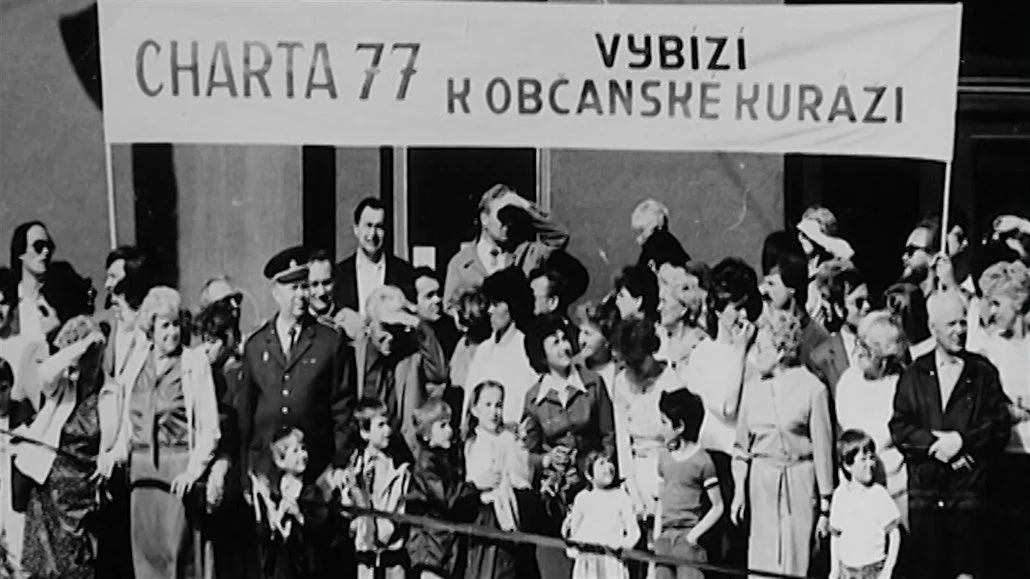As the trailblazing Velvet Revolution took place, many foreign to Czechoslovakia intensely paid attention. Some eyewitnesses photographed and recorded violence against protesters by riot gear police. Others made efforts to report the incidences and progress to the world as the revolution proceeded. The efforts of both protesters and witnesses to the revolution made way for a freer Czechoslovakia.
Karel Zeman: Czech Film Director and Animator
Legendary Czech film director, screenwriter, artist, and animator, Karel Zeman is known for creating fantasy and science fiction films. His first major breakthrough occurred in 1943 while participating in a window-dressing competition in Brno, where he accepted a job offer to work for the Bata Film Studios in Zlin. After that, in 1945, Zeman began work on A Christmas Dream, then directed his first feature film, The Treasure of Bird Island, in 1952. His work is illustrious enough for a museum dedicated to his work, the Karel Zeman Museum in Prague.
Jiřina Šiklová: Sociologist, Gender Studies Professor, and Dissident
Oldřich Kulhánek and the Czech Koruna
Oldřich Kulhánek was a Czech artist and critic of the Communist Regime best known for his work on designing the current Czech banknotes. His career began in 1958 at the Academy of Arts, Architecture and Design in Prague. During his young life, his politically motivated art would get him arrested and the art almost destroyed since he negatively portrayed Communist leaders. After the collapse of the Soviet Union, Oldřich Kulhánek was once again free to express his views through his art and was tasked with designing the bills of the Czech Koruna.
A History of Czech Feminism
The once egalitarian, agrarian society of Bohemia became ruled by the Hapsburg Dynasty, causing a regression in women’s rights until Christianity helped improve their lives. The National Revival brought the creation of Czechoslovakia and greater rights for women. When communism came, rights improved in some ways and did not in others. The change to a capitalistic democracy brought further changes.
Karlovy Vary Film Festival
The Karlovy Vary International Film Festival, or KVIFF, hosts about 200 films from around the world and is the oldest film festival. Located in Karlovy Very, Czech Republic, the film festival is held annually in July and is the most prestigious festival in Central and Eastern Europe, boasting a popular feature film competition.
Meda Mladkova
Meda Mladkova was a patron of the arts who helped support Czech artists stuck behind the Iron Curtain. She trained to be a dancer but decided to leave Czechoslovakia after witnessing how terribly the Germans who remained in the country were treated at the end of the Second World War. Even when she met the Ministers of Culture and Education and the Director of the Nationa Gallery, she truthfully and successfully stood up for artistic freedom.
Czech Beer : A Brief History
From the Brevnov Monastery to the modern-day Pilsner, the Czech people have been enjoying beer for over a thousand years. Known as the beer of tradition, Czech beer is ingrained into history itself. When beermaking was banned. the Brenov Monastery, as the first-ever Bohemian brewery, was exempt. Initially, after the ban on brewing ended, only noble families or homeowners were allowed to brew beer. It was in 1842 that the famous Pilsner was created.
Charter 77
Charter 77 is a declaration of human rights published by a group of Czech citizens. It declares that “Charter 77 is not an organization,” rather an idea. Support for Charter 77 mounted as publicly supporting it became more dangerous and life-uprooting. Even still, private and public support for the declaration of peaceful resistance continued, even 40 years into it’s creation.
Palach Week
Jan Palach was a Charles University student who protested the Soviet-led invasion of Czechoslovakia and the Warsaw Pact by self-immolation. His protest inspired further protests, including a hunger strike in Wenceslas Square. These protests further inspired resistance throughout the rest of Prague, and then Europe.
Vaclav Havel
Vaclav Havel, Czechoslovakia’s first president, also lived as an activist, poet, and playwright. Communist rule made Havel's life hard, including his education, but he prevailed, having attended university. Even into his adulthood, Havel faced political strife, having his plays banned from viewing and being harassed by the government due to his activism. Was the trouble worth it for the first post-Communism president?
Mother's Day in Czechia: Charlotte Masaryk
Through history, celebrating Mother’s Day in the Czech Republic was more complicated than one could imagine. It begins with the wife of Tomas Masaryk, Charlotte, who fought for women’s rights and taught her daughter, Alice Masarykova, to do the same. After her mother’s death, Alice established Mother’s Day in 1923. The complications of Mother’s Day lasted for a long time, into Czechoslovakia’s Communist occupation.
Ten Popular Breweries in the Czech Republic
The Dancing House of Prague
Věra Čáslavská: Athlete and Activist
Athletes have long been using their high-visibility platforms to comment on social issues and raise awareness. Věra Čáslavská, a gymnast from the now Czech Republic, is not only famous for her unparalleled success at the Olympic Games but her strong stance against the Soviet invasion of her country.













